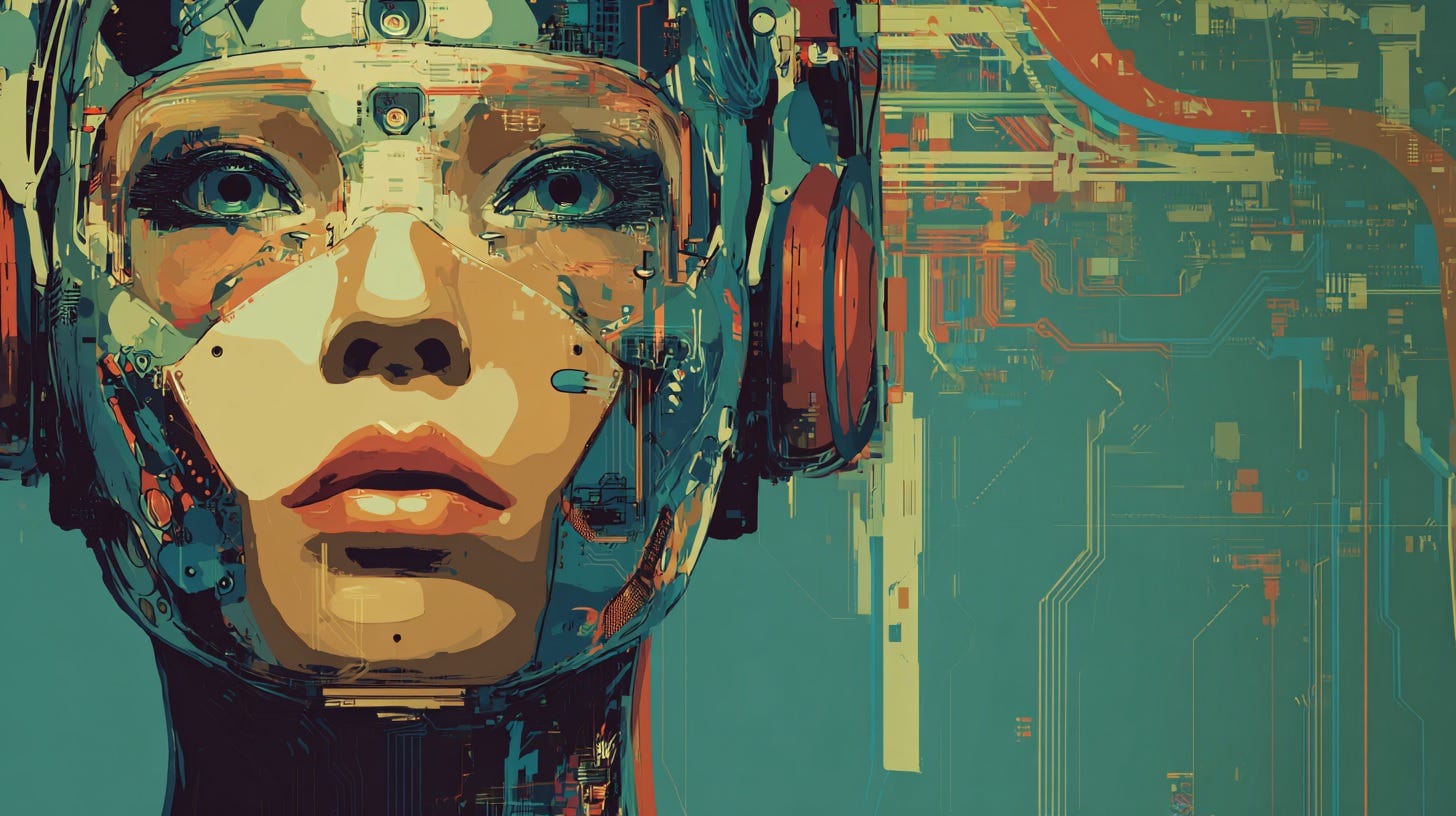In case you missed it ...
🎇 Searching for signals of soonish superintelligence (Monday)
🧬 Why 'great genes' matter for the American economy (Wednesday)
🛡 Math vs. Trump's dreamy Golden Dome (Friday)
⤴⤵ Up Wing/Down Wing: Fusion energy; pro-climate AI; AI predicts surgical risk; cancer research setbacks; Chinese space dominance; economic disparity.
🎇 Searching for signals of soonish superintelligence (September 15, 2025)
In Essence. AI could likely change the world as we know it — whether that means a major upgrade or total destruction. Why haven’t the markets gotten the memo?
In Theory. A new crop of economics papers is asking what financial markets would look like if AI were on the verge of transforming humanity. One such paper, “Transformative AI, existential risk, and real interest rates” by Chow, Halperin, and Mazlish, argues that a rise in real interest rates is a key indicator of the power of AI (for better or worse). Whether AI ushers in utopia or human extinction, real interest rates should rise because future consumption is worth less, and lenders need more incentive to part with cash today.
Reality Check. A second study, “Do Markets Believe in Transformative AI?” by Andrews and Farboodi, finds that the opposite is true in practice. When major AI models launched in 2023 and 2024, long-term Treasury yields actually fell by more than 10 basis points and stayed down. Corporate bonds and inflation-protected securities behaved similarly.
Bottom Line. The market response to AI has been much less dramatic than Chow and his colleagues had anticipated: “Far from heralding an age of plenty or a sudden doomsday, markets seemed to mark down future consumption growth or reduce the probability of “extreme ‘doom’ or ‘bliss’ outcomes” altogether.”
What’s Happening. Perhaps investors were underwhelmed by ChatGPT-like breakthroughs, or they doubt we’ll see broad productivity gains even if Big Tech’s profits soar. Another explanation could be a reassessment of fiscal risk, but underwhelming corporate and Treasury bond spreads don’t support that:
If investors think AI will boost government tax revenues . . . you would expect the spread between corporate bonds and Treasuries to widen, according to the authors. That, since a drop in government default risk wouldn’t necessarily make companies safer. Instead, the data show corporate bond yields fell in tandem with Treasuries
Up Wing Up Shot. Theory says transformative tech should drive rates up. Reality says markets aren’t buying the AI-as-destiny story — at least not yet. The safer bet: a more gradual process whereby AI enriches firms but doesn’t radically rewire society overnight.
Keep reading with a 7-day free trial
Subscribe to Faster, Please! to keep reading this post and get 7 days of free access to the full post archives.



